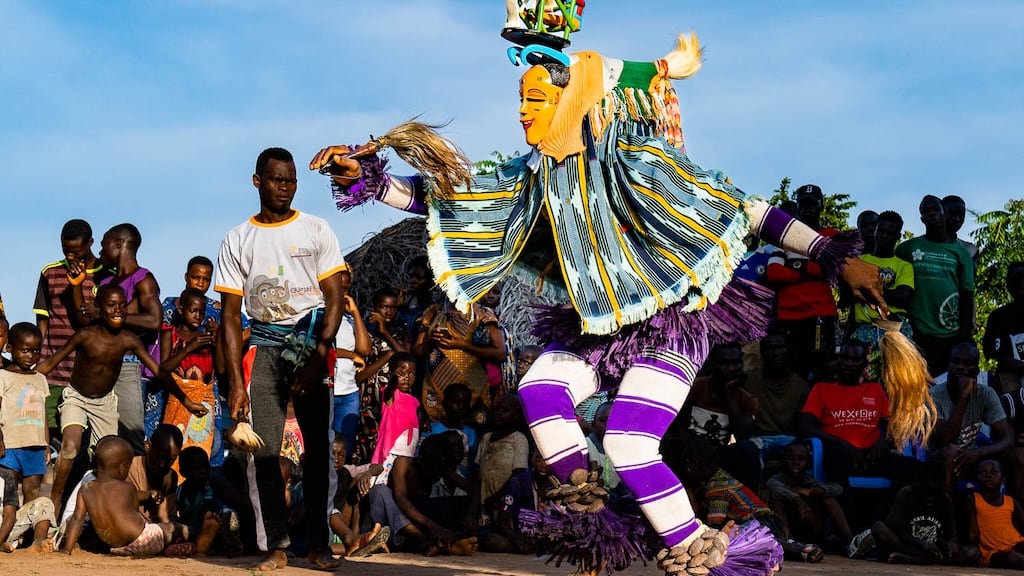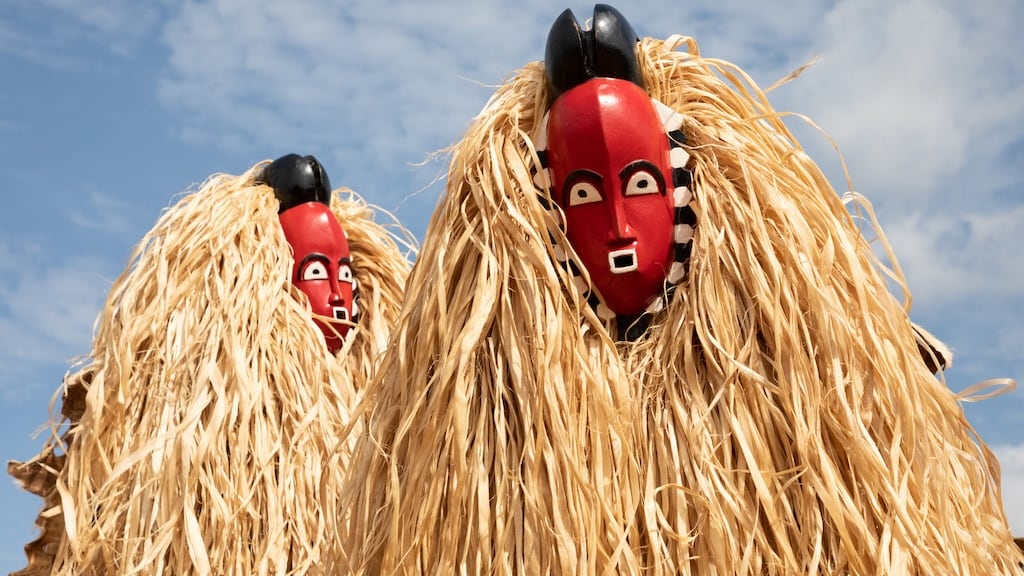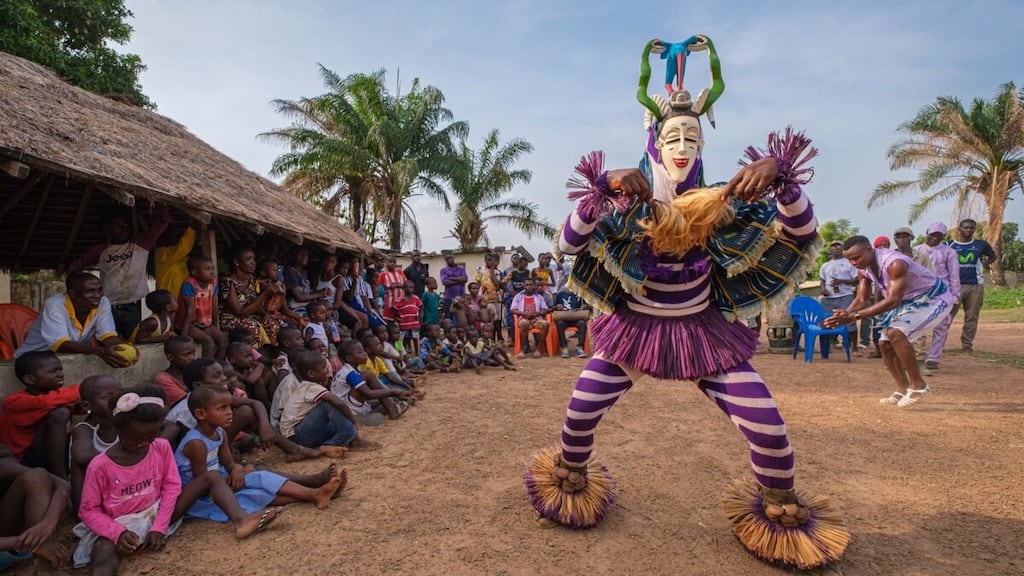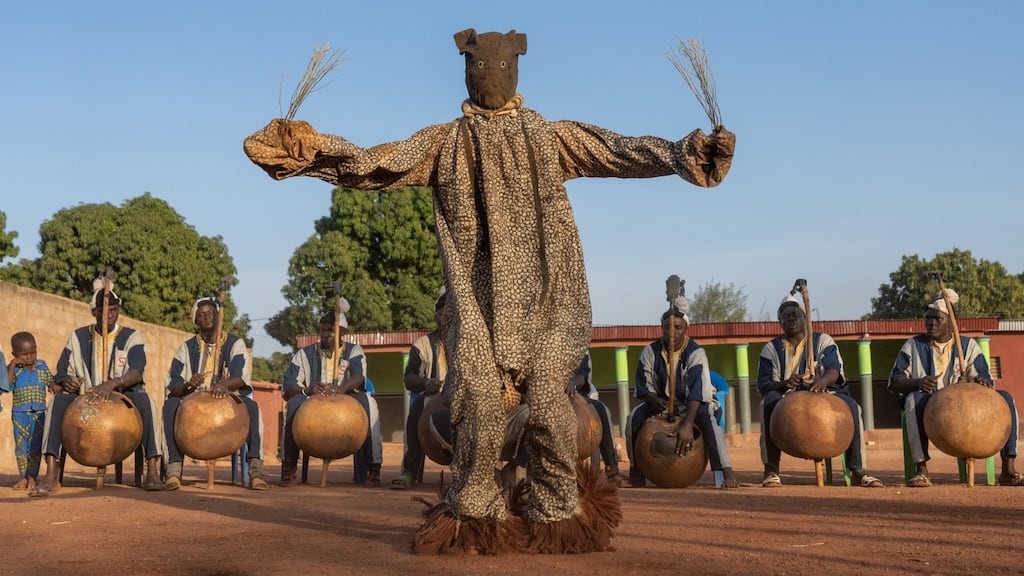Festival of Masks in Côte d'Ivoire
The Côte d'Ivoire Festival of Masks is a dazzling celebration of African culture and tradition, drawing tourists from around the globe to witness its vibrant and colorful festivities. More than just a cultural event, this festival serves as a profound spiritual experience that bridges the present with the ancestral past.
It stands as a testament to the rich cultural heritage of the Ivorian people and the broader African continent, offering a rare opportunity to witness customs and traditions passed down through generations.


Historical Background
The Festival of Masks traces its origins back to the early 20th century, when it was first celebrated by the Baoulé, Dan, and Wè peoples of Côte d'Ivoire.
Initially, the festival was a religious ceremony where masks were used to invoke the spirits of ancestors, seeking their protection and guidance. Over time, it has evolved into a cultural celebration that highlights the artistic and spiritual heritage of the region.
Evolution and National Recognition
In the 1950s, the festival gained national significance as a symbol of Ivorian unity and identity. During this period, the government began to sponsor the event, investing in facilities and infrastructure to accommodate the growing number of visitors. This support marked a turning point, transforming the festival into a major cultural event.
The 1970s saw another significant evolution, as the festival became a platform for political and social commentary. Masks were used to convey messages about contemporary issues, reflecting the dynamic nature of the festival and its role in society.
Typical Activities
The Festival of Masks is a multi-day celebration featuring a variety of activities and performances that captivate attendees:
Parade of Masks: The festival's highlight is the vibrant parade, where participants don elaborate costumes and masks, dancing through the streets to the rhythmic beats of traditional drums and music. Each mask represents a specific spirit or ancestor, adding depth and meaning to the performance.
Traditional Music and Dance: Visitors are treated to performances that showcase the rich musical traditions of Côte d'Ivoire. Instruments like the djembe, kora, and balafon create an enchanting atmosphere, while dancers bring the rhythms to life.
Workshops and Storytelling: Attendees can participate in workshops on mask-making and other traditional crafts, gaining insights into the artistry and symbolism behind the masks. Storytelling sessions offer a chance to learn about the myths and legends that underpin Ivorian culture.
Cultural Tours: For those interested in exploring beyond the festival grounds, cultural tours to nearby villages provide an opportunity to experience local customs and traditions firsthand.
Traditional Customs
The festival is deeply rooted in the spiritual beliefs of the Ivorian people. Masks are considered sacred objects, and the dancers who wear them are believed to be possessed by the spirits of ancestors.
The masks themselves are intricate works of art, meticulously carved and painted to embody various deities and spirits.
Culinary Delights
Traditional cuisine plays a significant role in the festival, with local dishes taking center stage at communal meals. Attiéké, a side dish made from cassava, and aloco, a sweet plantain dish, are popular choices. Another favorite is kedjenou, a flavorful stew that showcases the rich culinary heritage of Côte d'Ivoire.
Music and Dance
Music is an integral part of the festival, with traditional instruments setting the tone for celebrations. The djembe, with its deep bass tones, and the kora, with its melodic strings, create a soundscape that is both uplifting and soulful. The balafon, a type of wooden xylophone, adds a unique texture to the musical ensemble.
Best Time to Visit
The ideal time to visit the Festival of Masks is between November and December, during the dry season. The weather is pleasant, and the festival is in full swing, offering the best experience for attendees.
Location and Accessibility
The festival is celebrated in various parts of Côte d'Ivoire, with the largest celebrations occurring in the capital city of Yamoussoukro. For first-time visitors, hiring a local guide is highly recommended. They can provide valuable insights into the cultural significance of the festival and help navigate the diverse array of events and activities.
Accommodation
Accommodation options range from luxury hotels to budget-friendly guesthouses, ensuring that there is something to suit every traveler's preferences and budget. Whether you choose to stay in the heart of the city or in a more rural setting, you will find accommodations that offer comfort and convenience.


Conclusion
The Festival of Masks in Côte d'Ivoire is a vibrant and captivating expression of African tradition and culture. It is a spectacle that provides a unique glimpse into the Ivorian and, by extension, African artistic and spiritual heritage.
For travelers seeking an authentic cultural experience, the festival is an unmissable event that promises to leave a lasting impression.
The Festival of Masks is not just a celebration; it is a journey into the heart of African culture. It invites visitors to immerse themselves in the traditions, music, and artistry that define the Ivorian identity.